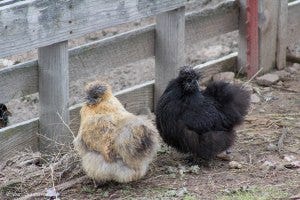Science Fiction Question
My mother and I have been talking about small livestock - it's her specialty - and space colonization. She brought something up, and the only title that leaped to my mind was Dave Freer's Slow Train to Arcturus. Only (it's been a while since I read that) I think the segments of that generation ship that went wild weren't intended to do so. But I figured if I didn't know, maybe one of my readers would. Here's Mom's question, and she says she stopped reading SF in high school, which would be mid-1970's. I've been re-introducing her to it!
Okay! Something has been poking at me about this topic, and I'm not sure that I've ever seen this one addressed by a sci-fi writer, although admittedly I haven't read that much sci-fi since high school so maybe someone has talked about it. But if you do have a multi-generational colony ship (multi-generational for the livestock at least, even if not for the humans), the animals -- and plants -- are going to adapt to the SHIP conditions, and they would lose genetics that they might need on the planet they were headed for. It would be really important for the ship to maintain destination-planet conditions at least in the growing area(s) of the ship (and that's another thing, there should be multiple growing areas, isolated from one another).
As I was looking at this, I was thinking about how well it ties into what I'm learning in genetics right now. The difference between phenotype - the expression of a gene, which is why some cats have black fur, and others are orange-marmie cats - and gentoype is indeed controlled by environmental conditions in some animals and many insects, so this is a very valid concern. And for those of you with entomophobia, I'm sorry, but bugs and microbes are vital to a healthy gardening and farming environment!




